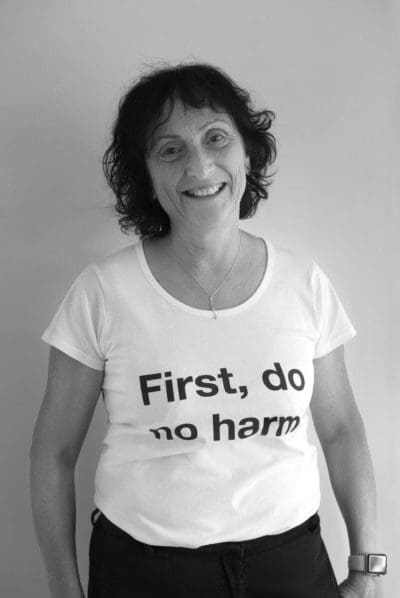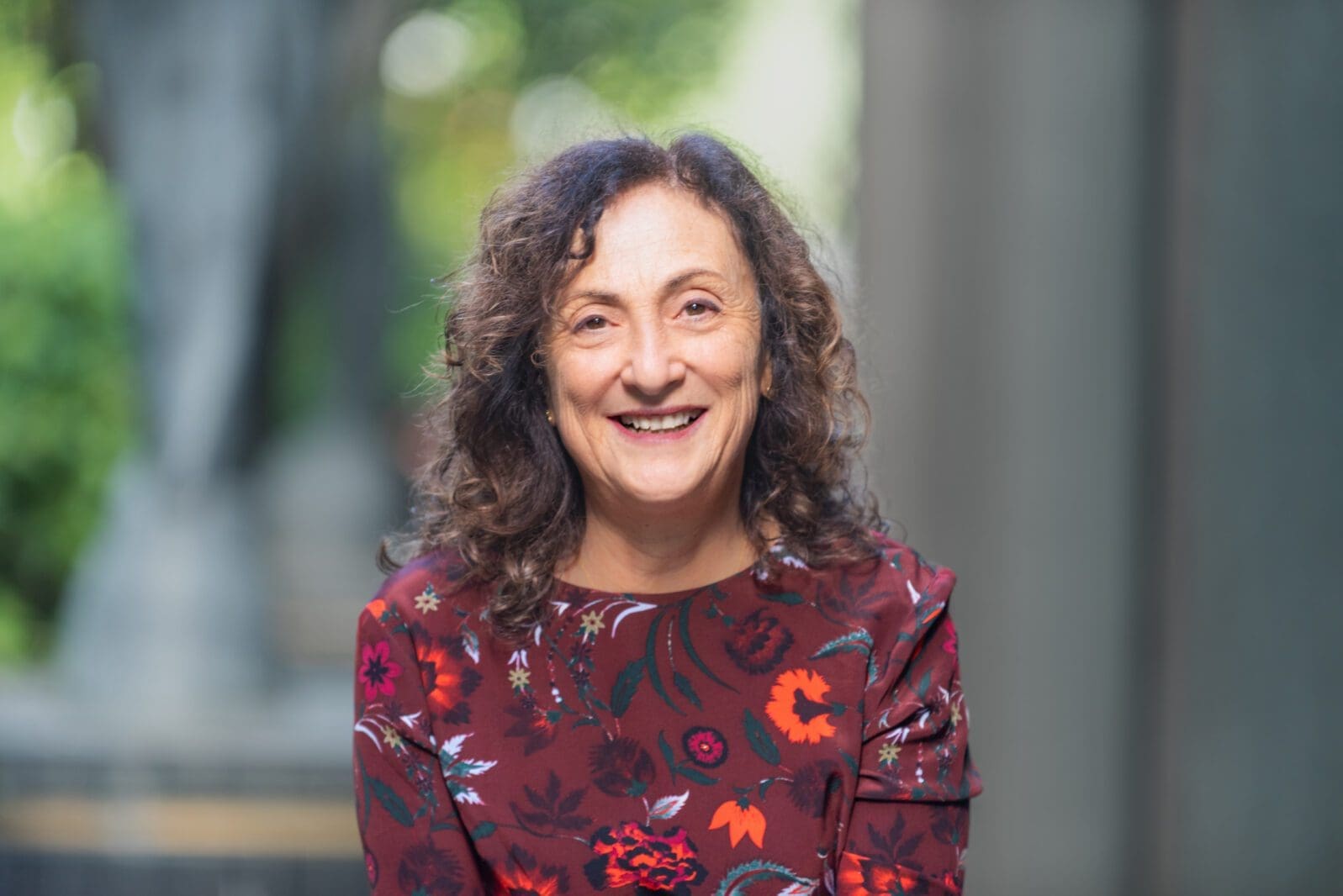A scientist dedicated to reducing harm in health care has won the 2023 Australian Academy of Health and Medical Sciences Outstanding Female Researcher Medal.
Professor Rachelle Buchbinder AO is a world-renowned rheumatologist and clinical epidemiologist who revolutionised the way the public and health practitioners treat and manage back pain. She is also a Fellow of the Academy.
She will be presented the Academy’s Outstanding Female Researcher Medal at a ceremony in Brisbane on 12 October, recognising the incredible impact her research and advocacy has had on public health.
“This award recognises all the people that I have worked with at various times in my career: it has never been a solo effort, but very much collaborative work,” Professor Buchbinder said.
Professor Buchbinder’s clinical trials in the musculoskeletal field have had significant impact – for example, her investigation of vertebroplasty (a type of spinal surgery) showed that it was no more effective than a placebo. Her trial method used an innovative placebo procedure that ensured participants were truly “blinded” (unaware if they received the treatment or the placebo) a method that has influenced other trials, leading to more accurate evidence.
“The main driver for me has always been around improving health, both at the population level but also for the patient sitting in front of me,” Professor Buchbinder said.
“So, if I am considering research, I always think about it through that lens: is it something that will improve outcomes or reduce harms?”
Professor Buchbinder’s focus has always been on evidence-based care, and many of her findings demonstrate issues of overmedicalisation, overtesting, overdiagnosis and overtreatment of musculoskeletal conditions such as low back pain, shoulder pain and knee pain. In 2018, The Lancet published a series of papers on low back pain, led by Professor Buchbinder, which highlighted these problems. The series encouraged the World Health Organization (WHO) to develop guidelines for the management of low back pain – Professor Buchbinder is part of the expert development group.
“Overmedicalisation, overtesting, overdiagnosis and overtreatment not only has the potential to harm patients for no benefit, it also wastes money and may deny care to those who truly need it,” she said.
“Further, unnecessary care may harm others through its unnecessary carbon footprint.”
Her advocacy for evidence-based health care also led to her co-authoring an internationally-lauded book with AAHMS Fellow and orthopedic surgeon Professor Ian Harris. Hippocrasy was written to empower patients to ask the right questions, and educate doctors to focus on preventing rather than treating illness.
“We decided to write this book because of the many problems we observed with modern medicine,” Professor Buchbinder said.
“Current medical care is based upon a business model that prioritises health care over health, and treats rather than prevents illness. As well, doctors tend to overestimate the benefits of what they do and underestimate its harms, and personal biases prevail over unbiased critical scientific thinking.”

Professor Buchbinder said she was most proud of her longstanding collaborations with others, which she said was crucial to her success.
“I have been privileged to work with so many wonderful colleagues who have shared the vision that we can achieve so much more when we work together,” she said.
“I love mentoring and training the next generation of researchers, and am driven by how many more people we need to be working on reversing unnecessary, wasteful and harmful medical care.”
The Academy’s Outstanding Female Researcher Medal is awarded annually to a leading woman researcher in Australia who has made ground-breaking contributions in the fields of health and medical sciences. Consideration is given to those whose career has been interrupted or constrained by reasons such as illness, childbearing and caring responsibilities.
The Outstanding Female Researcher Medal has been made possible by a generous donation from The Gandevia Foundation, for which the Academy is most grateful. The award will be conferred at the Academy’s annual meeting in October.
Nominations for the 2024 medal will open later this year. Learn more on the program website.
Media: AAHMS Communication Manager Katie Rowney, [email protected] or P: 07 3102 7212 M: +61 (0) 419 787 551
Video footage and high-res images available on request.

